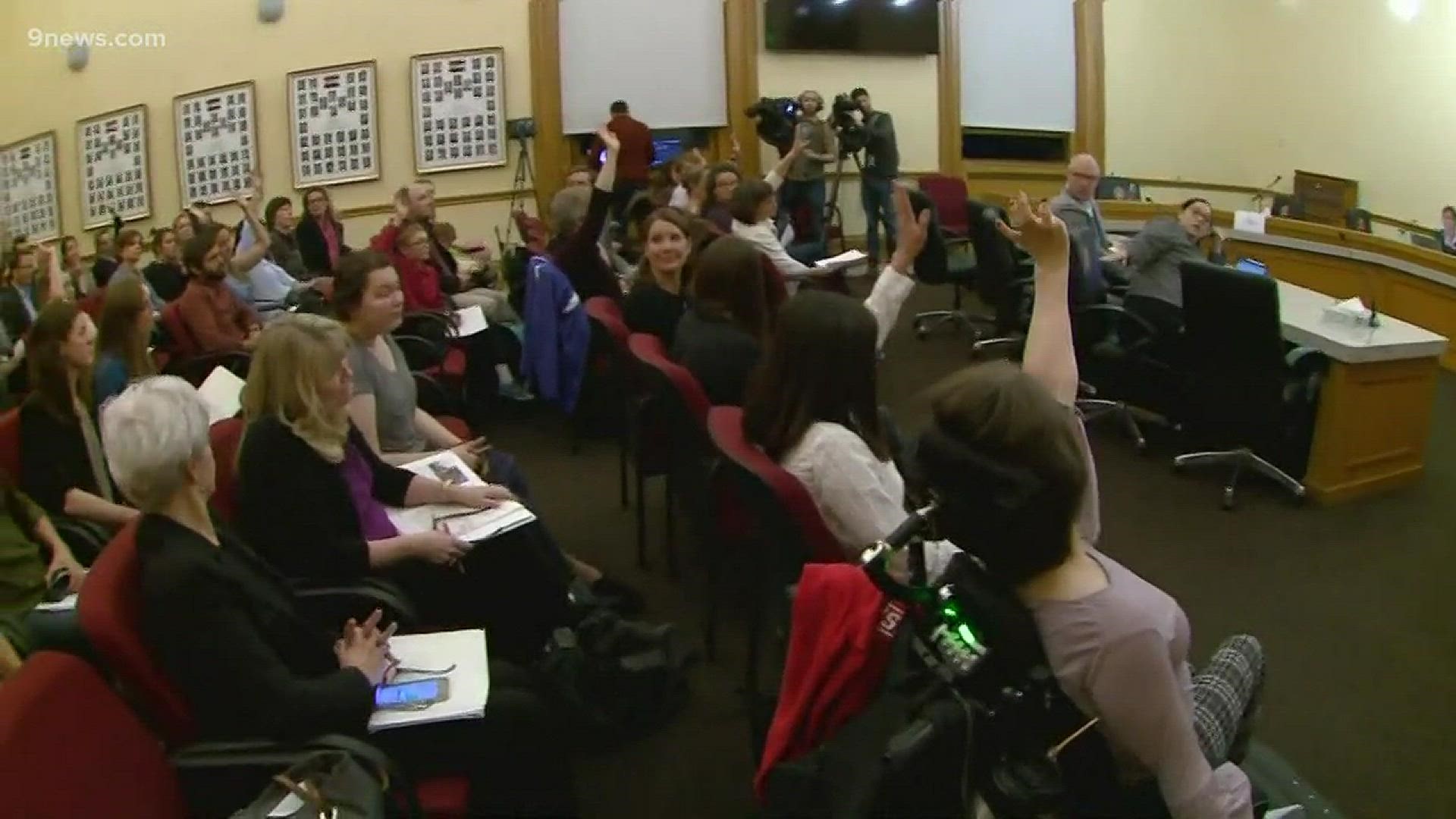DENVER — The Senate finance committee approved a bill early Thursday that aims to increase the state’s vaccination rate among students.
House Bill 1312 would create a standardized exemption form and requires all exemptions to be submitted to the Colorado Department of Public Health and Environment (CDPHE) or the local public health agency. Non-medical exemptions must be submitted in person to the CDPHE or local health agency; subsequent renewals can be submitted in person or online.
Testimony was limited to a total of four hours, during Wednesday night's committee hearing. Opponents and supporters of the proposal each had two hours to share their thoughts.
That meant that not everyone who wanted to testify got the chance to do so. A spokesperson for the Senate said testimony was capped due to the amount of time left in the legislative session, which is scheduled to end May 3. Testimony for other bills was also limited.
According to the Centers for Disease Control and Prevention, the vaccination rates for Colorado kindergarteners ranks 49th out of 49 states that report data. During the 2017-2018 school year, the CDC says 88.7 percent of Colorado kindergarteners received the MMR vaccine (for measles, mumps and rubella) compared to the national median of 94.3 percent.
Colorado rates were also lower than other states for the DTaP and Varicella vaccines.
HB19-1312 would do the following:
- It would require CDPHE to develop a standardized form and submission process to claim a medical exemption to immunization, and a standardized form and submission process to claim a religious or personal belief exemption to immunization
- To claim a medical exemption, parents or legal guardians must complete and submit a certificate of medical exemption, which would be a state-issued form. That certificate would need a signature from a licensed physician, physician assistant, or advanced practice nurse. Then the parent must provide a copy of the completed certificate to the child’s school
- To claim a religious or personal belief exemption, a parent or legal guardian must complete a certificate of religious or personal belief exemption, which would be a state-issued form. The first year, the parent would be required to submit that certificate in-person to the state department of health or a county or municipal health agency. To renew the exemption in later years, the parent could submit the certificate either online or in-person
- It would require CDPHE to develop educational materials regarding immunizations to be distributed to health care providers and facilities
- It would require CDPHE to present immunization exemption information during its annual SMART Act hearing, where state health officials address legislators
- It would require CDPHE to use the existing immunization tracking system
The effort to increase vaccination rates in Colorado comes as the numbers of measles cases in the U.S. reached the highest level in 25 years. So far in 2019, 704 cases have been reported in 22 states.
According to the Colorado Department of Public Health and Environment (CDPHE), the state already requires students to be vaccinated against certain diseases unless they have a medical, religious or personal belief exemption on file.
CDPHE says medical exemptions currently require a signature from a medical doctor, doctor of osteopathic medicine, advanced practice nurse or delegated physician’s assistant on a state-issued form. They only need to be submitted once, unless the student’s information or school changes.
The bill passed by a vote of 4-3 and now heads to the full Senate floor.
SUGGESTED VIDEOS | Local stories from 9NEWS

